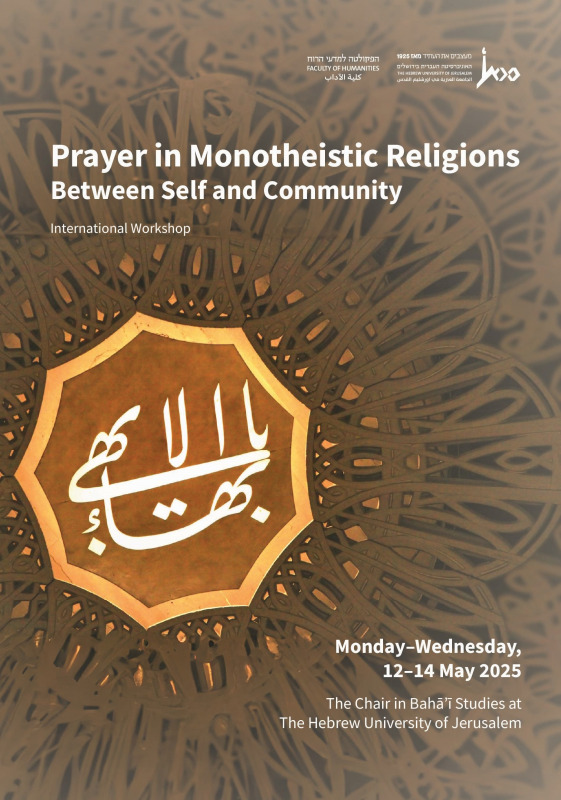
Prayer and religion are inextricably connected. Whether in the form of public rituals or in the private sphere of the believer, prayer, in its broadest definition, constitutes a fundamental aspect of religious systems worldwide. Indeed, it is seemingly quite hard to imagine a communal or individual relationship with the Divine – however we might define It – without assuming the existence of some kind of prayer. This obvious fact, however, should not blind us to the specific characteristics of praying practices, their theological perceptions, and their histories within any given religion; nor should it blind us to the essential differences in this regard between various movements or traditions – philosophical, theological, mystical, ascetical, and more – within each religion.
The above is especially true when it comes to the Bahā’ī religion. As is well known, this religion has its roots in Islam, in which prayer – in both its communal and private forms – is of the utmost importance, being regarded as one of the five “pillars” (arkān) of Islam. However, prayer in the Bahā’ī faith has assumed different features than those in Islam. In the Bahā’ī Faith, there are obligatory prayers as well as a wide range of prayers revealed by the founder, the responsibility for the practice of prayer rests with the individual, and there is no clergy and no liturgy. The ritual aspect of prayer has been abrogated in favor of personal expression in its individual mode, and gradually evolving forms and spaces for communal prayer.
In our workshop, we seek to explore the following questions: what is the meaning of prayer for the Bahā’ī believer and for the Bahā’ī community? What is the relation between practices and theologies of prayer found in the Bahā’ī Faith and in Islam, particularly in its Shī‘ī and mystical traditions? More generally, can we identify within two other monotheistic or Abrahamic religions – namely Judaism and Christianity – conceptions of prayer similar to those that we find in the Bahā’ī and Islamic faiths, or parallel shifts in the ways in which Jewish and Christian philosophers, theologians, mystics, and ascetics viewed and practiced prayer over the ages? What is the scriptural foundation of prayer? How are practices of prayer linked to meditation, to mystical communion with the Creator, or with cultivation of social well-being? What is the relation, in this context, between communal and individual prayer? We seek to examine these questions preferably by reading texts (primary sources) and discussing them together.
